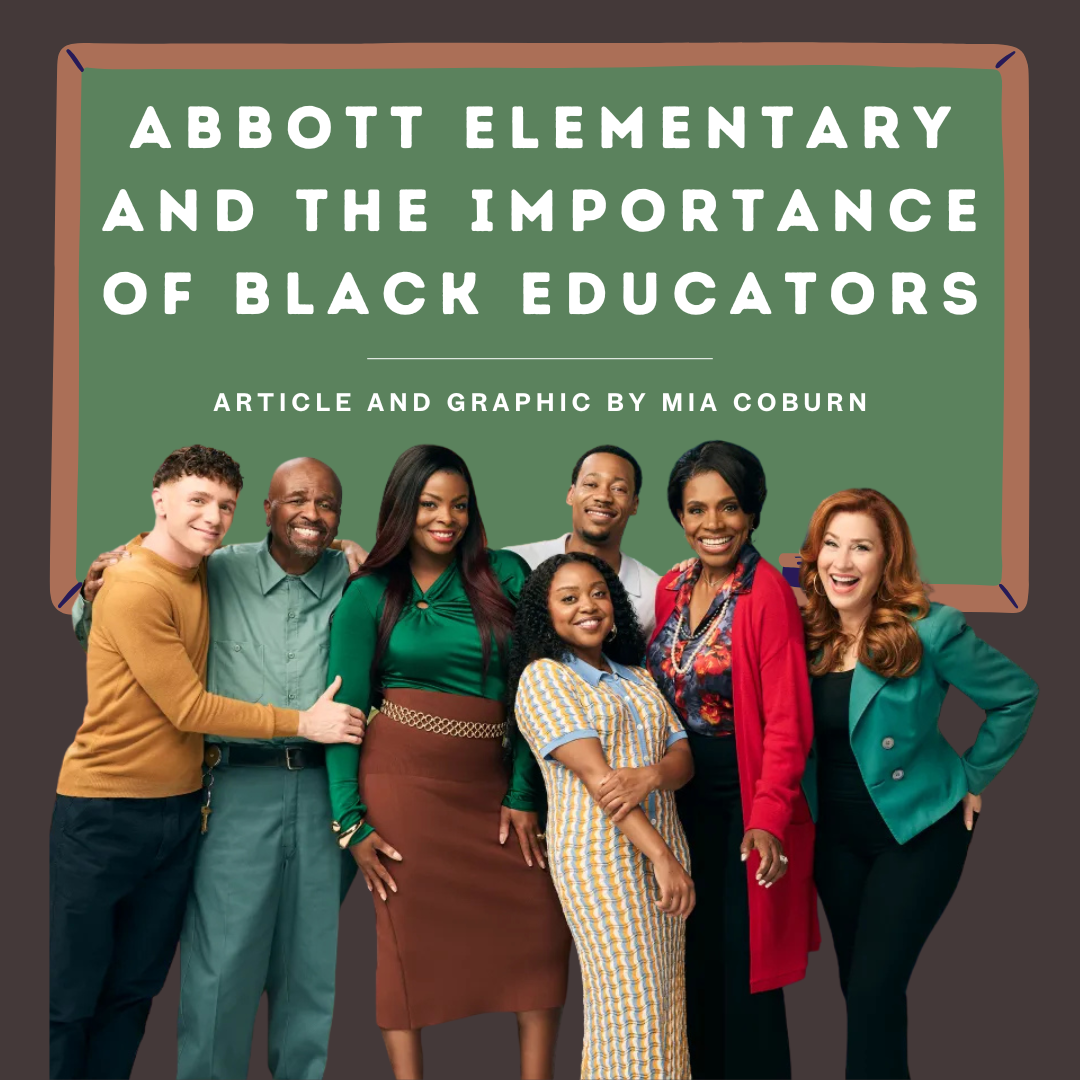The critically acclaimed television series Abbott Elementary, an American mockumentary-style sitcom created by Quinta Brunson, is currently streaming its fourth season on ABC. Abbott Elementary is set in a fictional underfunded, predominantly Black public school in Philadelphia and reminds audiences of Black educators’ significant influence on their students’ lives.
Abbott Elementary is a workplace comedy centered around a group of dedicated teachers—and an oblivious principal—in a public school where, despite the odds stacked against them, they are determined to help their students succeed in life.
Beyond the fictional realm, Abbott Elementary emphasizes real-world challenges that Black educators and students face. The show addresses systemic inequities in education, particularly in Title 1 schools (institutions that receive federal funding to assist students from low-income families) like Abbott Elementary. Higher teacher turnover rates and scarce resources are common problems in these schools, making matters worse for teachers and students.
By addressing the harsh realities of racial bias and discrimination within the education system, Abbott Elementary calls attention to the pressing need for transformative change in education. The series supports equity and inclusion, and in turn, centers the experiences and voices of the Black educators and students within the show.
Quinta Brunson, Sheryl Lee Ralph, and Tyler James Williams, respectively, play characters Janine Teagues, Barbara Howard, and Gregory Eddie. Their roles highlight the unique and special role Black teachers play in improving their students’ learning. Janine Teagues, an overly optimistic second-grade teacher, is committed to making sure her students have the resources needed to be successful, even if that means tackling the administration. She advocates for her students and the school community every chance she gets.
Barbara, an old-school kindergarten teacher, has many years of teaching at Abbott under her belt and represents long-time teachers and their tried-and-true methods of teaching. However, because she’s been teaching for so long, she struggles with the evolving nature of education. From changing curriculums to the introduction of technology throughout the show, Barbara tends to keep a strong face even when she is frustrated or in desperate need of help for the benefit of her students. Additionally, she is devoted to ensuring that her students work with what they have rather than feeling “less than” because of what they lack. Barbara’s students achieve academic success because of her emphasis on setting high standards and instilling pride in her kids.
Gregory Eddie, a matter-of-fact and practical first-grade teacher, is an impactful look at the importance of Black male teachers specifically. Shareefah Mason for The Educator’s Room explains that “Very few are offered leadership opportunities because they are not seen as progressive professionals who desire more. But Tyler [James Williams] has changed the perception of Black male teachers in a major way.” Gregory breaks the stereotype of loud and social male teachers who are only good for giving consequences and being athletic coaches. He displays the wide range of Black men when he does things like counseling boys on the importance of education and teaching them how to become self-sufficient and healthy by growing their food from a garden.
Black educators serve as role models and can change their students’ lives, although fictional, Abbott Elementary teachers are clear examples of this fact. Representation is real and it matters. Black students must have educators who look like them, not only to be role models but also to be a voice for the voiceless. Black educators can relate to Black students on a deeper, more personal level and guide them to become productive members of society.
Beyond representation, Abbott Elementary emphasizes the need for an all-encompassing support system for Black educators, such as mentorship programs, chances for professional growth, and fair resources. It is crucial to address the structural obstacles that disproportionately impact Black educators to foster an inclusive and diverse teaching workforce.
In the words of Allie Moustakis for The Queens Journal, “In a world where Black voices are often marginalized, Abbott Elementary reminds us of the importance of uplifting and empowering Black educators and students alike. This shouldn’t be limited to the realm of entertainment.”
Sources
‘Abbott Elementary’ reminds us we need more Black teachers
What ‘Abbott Elementary’ Gets Right About Black Teachers
Abbott Elementary and the amazing portrayal of Black male educators








